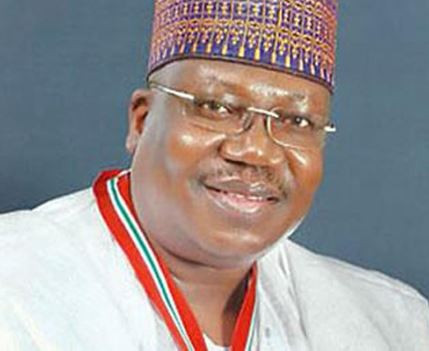Comrade Adams Oshiomhole, the “factional” leader of the ruling All Progressives Congress (APC), has reportedly asked Senate President Abubakar Bukola Saraki to resign his position as Senate President. What exactly does the Comrade want Saraki to resign from – the Senate Presidency or even his membership of the Senate having won election into the Assembly in the first place on the platform of the APC? Oshiomhole also probably expects that other members of the APC who are occupying elective and appointive positions will also tender letters of resignation, having defected from the ruling APC.
It is either the embattled party Chairman has not adverted his mind to the provisions of the Nigerian Constitution on party matters or the party’s legal adviser is not doing his job. The gale of defections from the ruling APC – 16 Senators, including the Senate President, three Governors, 37 members of the House of Representatives, the Nigerian Ambassador to South Africa, the National Publicity Secretary of the APC, and looks like more to come in the days ahead, including Ministers who may be preparing their letters of resignation, their political principals having deserted the party – raises a number of questions, political, moral and legal.
I intend to address some of these in order to assist the leaders of the APC to stop acting as cry-babies and to attempt a clarification of the nature and character of the tsunami that seems now certain, if unchecked, to sweep the APC out of power.
With regard to the Saraki defection, the language of the Constitution is very clear and specific in Section 50(1) (a) wherein it is stated that there shall be “a President and a Deputy President of the Senate, who shall be elected by the members of the House from among themselves”. The same expression is retained in Section 50 (1)(b) as applicable to the House of Representatives, and the emphasis is on the phrase – “from among themselves.”
The Constitution thus does not say that the Senate President or the Speaker and their Deputies must come from the ruling or majority party; indeed any of the members of the Assembly can occupy the mentioned positions once their colleagues choose them “from among themselves.” Saraki does not therefore have to resign his Senate Presidency because he has left the APC, that party also cannot order him to resign. The only way he or the Speaker of the House of Representatives can be removed is stated in Section 50 of the Constitution and in the present circumstance Section 50(2)(c) is of particular interest – it prescribes removal only “by the votes of not less than two-thirds majority of the members of that House”.
Can the APC at the moment muster up to “two-thirds majority” in either the Red or the Green Chamber to remove the Senate President or the Speaker and their Deputies? I don’t think so. There are probably more persons in both Houses who have also resolved to defect from the APC but who are still physically identifying with the party in order to stay behind as fifth columnists, or simply because of a lingering lack of clarity about their fortunes in their local political environments should they defect at a wrong time.
I think Comrade Oshiomhole also needs to be reminded that Nigeria is not running a parliamentary system; the agenda of party supremacy that he has been pushing, and which probably makes him sound like a cane-welding party chairman – dishing out Stalin-like instructions to other party members, is only bound to alienate others, and effectively turn him into an undertaker. A Constitutional democracy such as we run requires greater inclusion, horse-trading and statesmanship rather than the dominant rhetoric of arrogance.
Those who have defected from the APC also need not lose any sleep, particularly members of the legislative houses. Specifically, Section 68 of the 1999 Constitution outlines the circumstances under which a member of the Senate or House of Representatives shall vacate his seat; the most relevant to this commentary being Section 68 (1) (g) which permits defections from one political party to the other in the event of a division in the political party of which a person is a member, or the merger of two or more political parties or factions.
Those APC members who are protesting the defection of the Senate President and others cannot deny that there is a division within the APC or that the party is now divided into factions – the Oshiomhole-led faction, the Engr. Buba Galadima-led faction better known as the Reformed APC and the Saraki faction, which has now returned to the PDP.
However, whereas Section 68(1) (g) offers such protection to defecting members of the National Assembly, the Nigerian Constitution is silent on the matter of Governors who come to power and office on the platform of one political party and who while still in office choose to cross to another political party.
This is the dilemma that is thrown up by the phrasing of Section 221, and perhaps the basis for Oshimohole’s request for Saraki’s resignation, even if the provision does not apply to him in the light of a reading of other sections. Section 221 states that: “No association, other than a political party shall canvass for votes for any candidate at any election or contribute to the funds of any political party or to the election expenses of any candidate at an election.”

























